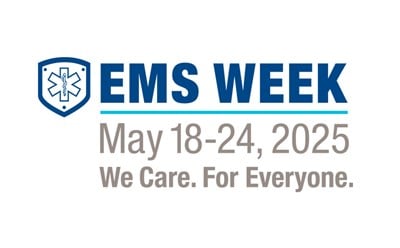WASHINGTON, D.C.—The American College of Emergency Physicians (ACEP) applauds the passage of the Dr. Lorna Breen Health Care Provider Protection Act (H.R.1667), legislation that takes significant steps to prevent physician suicide, reduce burnout, and address major concerns about the mental health of emergency physicians and care teams.
“ACEP is grateful that Congress recognizes the weight of the challenges shouldered by medical professionals on the frontlines throughout the pandemic,” said Gillian Schmitz, MD, FACEP, president of ACEP. “This important legislation honors Dr. Breen’s legacy and charts a path forward that helps limit the barriers currently preventing many emergency physicians from seeking the mental health care they need.”
ACEP has been instrumental in the collaborative effort to craft and pass the legislation named for Dr. Lorna Breen, an emergency physician and ACEP member in New York who died by suicide in 2020 after courageously treating COVID-19 patients and contracting the virus herself.
The legislation calls for behavioral health and wellbeing training programs, a national campaign to encourage health care professionals to seek support and treatment, a federal study into health care professional mental health and burnout, and grants to establish and expand mental health support services.
Emergency physicians deeply appreciate the efforts to finalize this legislation by Reps. Susan Wild (D-PA), Raja Krishnamoorthi (D-IL), Judy Chu (D-CA), David McKinley (R-WV), and more than 160 co-sponsors in the House, as well as Senators Tim Kaine (D-VA), Todd Young (R-IN), Jack Reed (D-RI), and Bill Cassidy (R-LA), and countless physician mental health champions.
Emergency medicine is an extraordinarily challenging profession with more than 65% of emergency physicians and residents indicating that they experience burnout during their careers, according to research in Annals of Emergency Medicine. Despite the toll of serving on the frontlines during the COVID-19 pandemic, many emergency physicians hesitate to prioritize their mental health.
An ACEP/Morning Consult poll from October 2020 shows that almost half (45%) of the nation’s emergency physicians do not feel comfortable seeking mental health treatment. Many physicians have legitimate concerns that seeking necessary mental health care could result in the loss of their medical license or other professional setbacks.
Protecting physicians’ mental health is a major priority for ACEP. The association developed a statement with more than 40 leading medical organizations with recommendations to remove barriers to treatment. ACEP also strongly supports the Joint Commission's stance that a health professionals’ history of mental illness should not be used as an indication of their current or future ability to practice medicine. For its members, ACEP offers free mental health counseling sessions, a 24-hour support line, and other tools and resources.
“The impact of this pandemic will be felt long after the last surges diminish,” said Dr. Schmitz. “Emergency physicians must be empowered to prioritize their mental health and this bipartisan effort to enhance critical mental health resources is undoubtedly a lifeline for many people who would otherwise struggle in silence.”
 American College of Emergency Physicians
American College of Emergency Physicians







